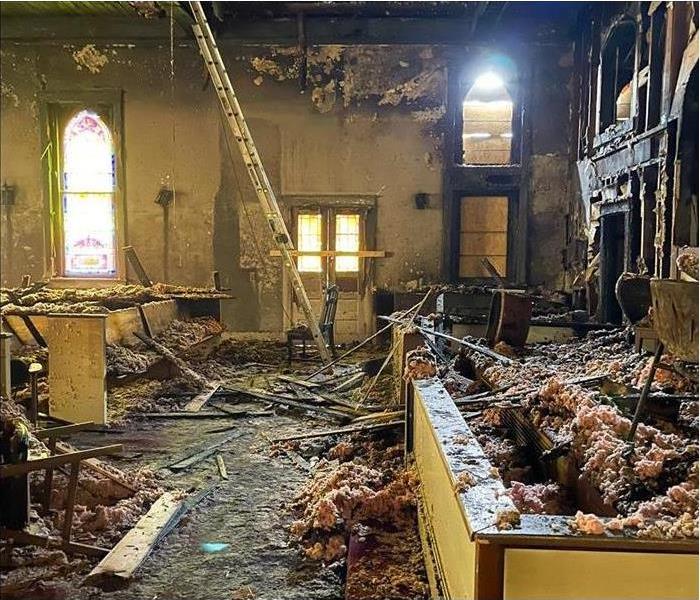The Riddle of Water Damage After a Fire
1/21/2022 (Permalink)
The Aftermath Of a Fire
The flames billow during a fire in Nelson, GA, and nothing is more welcome than the fire fighting crew with the pressurized water hoses and chemical retardants being sprayed onto the roof of your commercial building. As the flames die down, an inspector can then inform you the building is safe to reenter. That is when you notice the fire damage and water - so much water. How can you begin to deal with all that unexpected water? Try these three steps.
1. Contact a Professional
Fire and smoke restoration professionals can quickly begin work on removing the water from your building once the fire marshal, inspector or deputy allow entrance. By beginning the cleanup process as quickly as possible, future mold and mildew problems can often be alleviated.
2. Look for Water
An average fire hose can supply up to 24 gallons of water a minute when fighting a fire. That means that in 30 minutes, the hose is shooting out enough water to fill an average swimming pool with about 18 inches of water. Along with fire damage, water pressure often breaks windows, tears through doors, and enters ceiling holes. Water may find its way into unexpected places such as inside electronics, under wooden floors, and inside walls. Looking for water damage in hidden places can save time and money.
3. Create Air Flow
After removing as many of the porous items from the water as possible, and once the professional team has removed the majority of the liquid, create a method of air circulation and ventilation. Your fire restoration team may offer industrial blowers, dehumidifiers and air moving fans, but if they do not, it is still important to get the air moving to remove excess moisture from the building. This can help prevent mold and mildew, warping floors, and bulging walls.
Fire damage often includes hundreds of gallons of water. Knowing what the possible scenario is in the aftermath of a fire can help you be prepared for the unexpected. Too much water can be a bad thing, especially when it is on the floor of your commercial property.




 24/7 Emergency Service
24/7 Emergency Service
